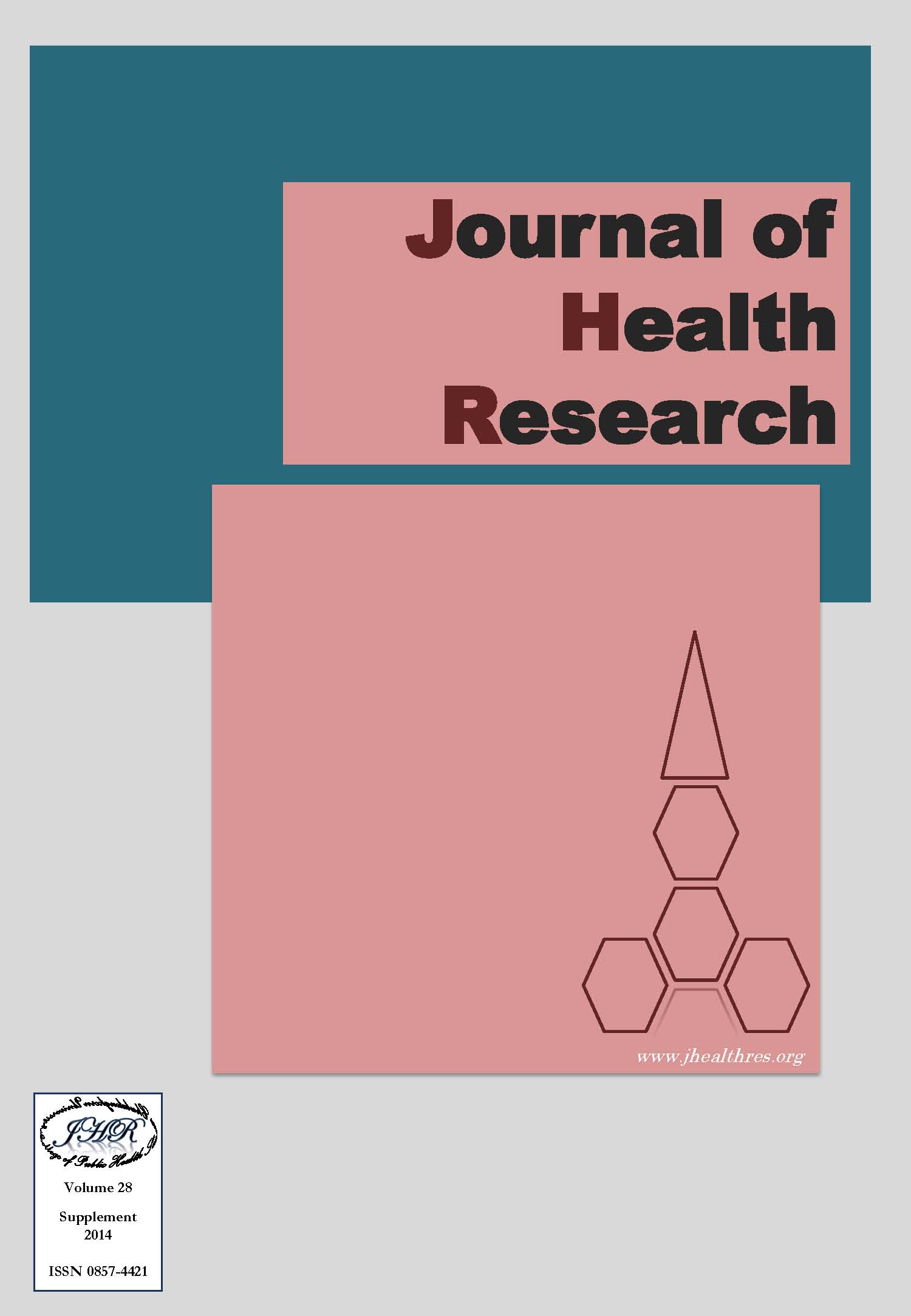Blood Cholinesterase Level as Biomarker of Organophosphate and Carbamate Pesticide Exposure Effect among Rice Farmers in Tarnlalord Sub-District, Phimai District, Nakhon Ratchasima Province, Thailand
Keywords:
Cholinesterase, Organophosphate (OPs), Exposure, Rice farmers, ThailandAbstract
Background: Pesticide has been imported to Thailand for several years including insecticide, herbicide, and others coinciding with the expansion of the country’s agricultural system. Among these chemicals are organophosphate and carbamate the groups of chemicals primarily used in agriculture. Exposure to these pesticides can cause harmful effect on human health. Methods: This study aims to find blood cholinesterase levels of acetyl cholinesterase (AChE) and plasma cholinesterase (PChE) for 3 times in dry-season crops, and to assess health effects of organophosphate and carbamate pesticides exposure among rice farmers (n = 33) in Tarnlalord Sub-District, Phimai District, Nakhon Ratchasima Province, Thailand. The design of this study was a cross-sectional study with questionnaire by face to face interview and blood-tests by Test-mate ChE (Model 400) instruments. Results: The average age (± SD) of the study was 46.0 ± 9.4 years old. The results showed the ChE levels in rice farmers in 3 times including (1) the first blood collection, 24 hours after application, 72.70% of the farmers were abnormal (2) the second blood collection, 15 days after the first collection, found 48.50% of the farmers were abnormal, and (3) the third blood collection, 30 days after the first collection, found 42.40% of them were abnormal. The activity of AChE and PChE level was assessed for 3 times. Differences showed a statistically significant association between within 24 hours after first application and 15 days after the first application and 30 days after the first application and previous (24 hours and 15 days after first application) was significantly associated (ANOVA, p<0.05). The farmers reported their adverse health effects related to gastrointestinal system, urinary system, eye, skin, and central nervous system. Additionally, the AChE level within 24 hours after first application was significantly associated to eye symptoms (Chi-square, p<0.05). Conclusion: This study showed that after the rice farmers applied pesticides at the beginning, both AChE and PChE levels were abnormal with self-recovery to normal levels by time. The appropriated self-practices and prevention from pesticides exposure should be recommended to rice farmer regarding proper use of personal protective equipment (PPE) and pesticides handling to reduce adverse health effects from pesticides exposure.






